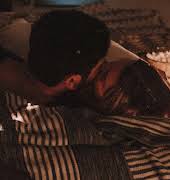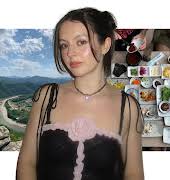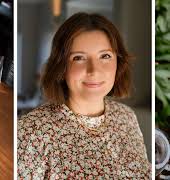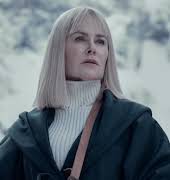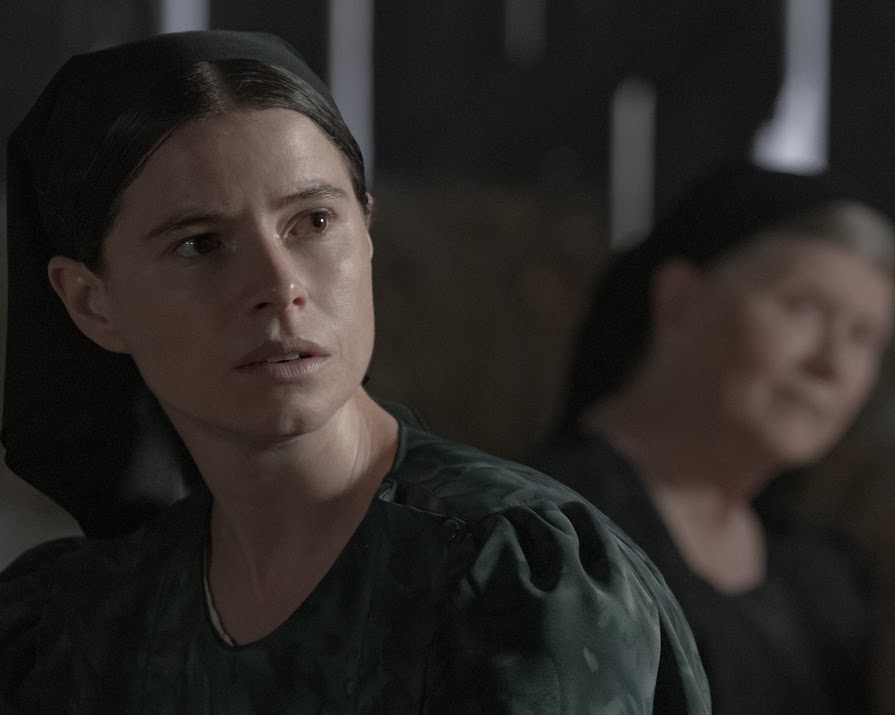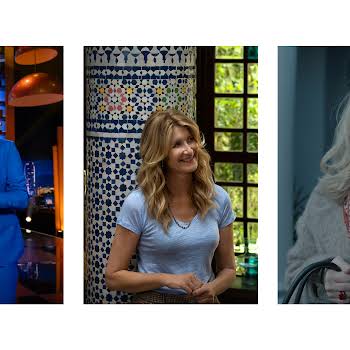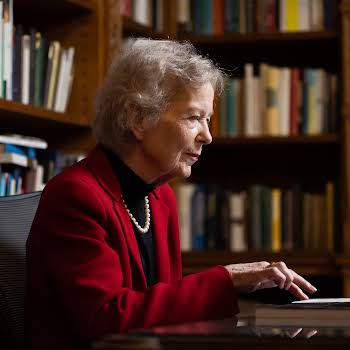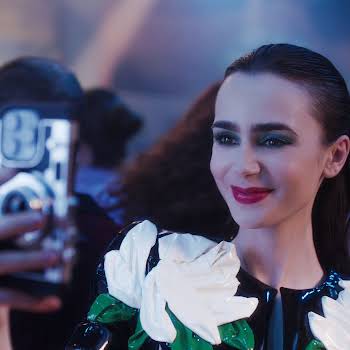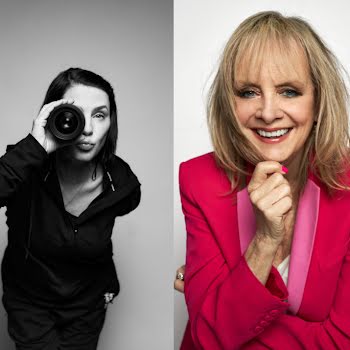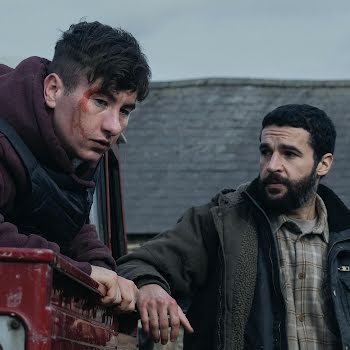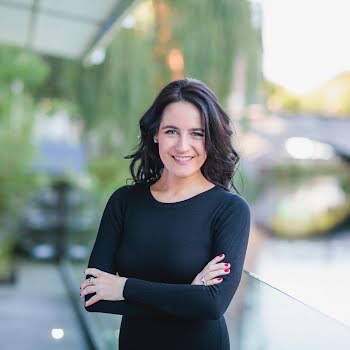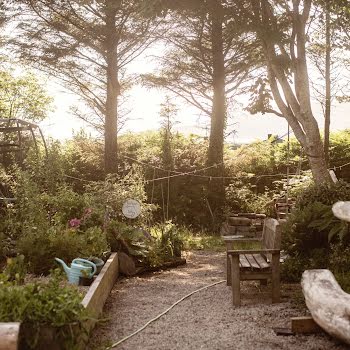Jessie Buckley and Claire Foy on conflict, community and why ‘Women Talking’ ‘provoked’ them
By Sarah Finnan
06th Feb 2023
06th Feb 2023
Do nothing. Stay and fight. Leave. Those are the three options the women of a small, isolated Mennonite community face in director Sarah Polley’s Women Talking – a powerful piece of filmmaking nominated for Best Picture at the Oscars this year.
The movie is based on a book by Canadian writer Miriam Toews, which itself is loosely based on actual events – and the real-life story is beyond horrifying. Between 2005 and 2009, 150 women and young girls were raped and drugged by men in an isolated Mennonite community in Bolivia. Ranging in age from 5 to 65, the victims would be rendered unconscious with cow anaesthetic and would wake bloodied and aching, but with no idea of what had really transpired.
When they spoke up, the men would blame these attacks on satan or the women’s rampant imaginations. It wasn’t until one woman woke during an assault that a man was caught in the act. The crime was reported to the authorities which went to trial two years later. The victims showed up to testify and seven of the eight defendants were sentenced to 25 years in prison. One evaded capture.
Raised Mennonite in Manitoba Canada, author Miriam Toews had a visceral reaction to these women’s story. Describing her book as “an imagined response to real events”, both the novel and the movie open after the rapes have been discovered. Those culpable have been arrested and the rest of the men have gone to town to arrange bail.
In the men’s absence, the women gather in a barn to discuss the situation. One man remains, August Epp, the soft-spoken schoolteacher played by Ben Whishaw, who is tasked with taking the minutes of the women’s meeting (none of the women can read or write).

For the colony’s bishop, Peters, all that’s needed is for the men to come home so the victims can forgive them, thereby ensuring everyone’s place in heaven. Faced with three options – do nothing, stay and fight, or leave – the decision of what the women in the community should do is left to two families – Salome (played by Claire Foy), Mariche (played by Jessie Buckley) and “spinster” Ona (played by Rooney Mara) amongst them.
In the book, everything you read is written by August – women’s ideas are the central focus, but they’re transcribed by a man. In Toews’ imagining, August is the narrator; here, he is but an observer. Instead, Autje, one of the youngest members of those gathered (who has also been violated), recounts the story to Ona’s unborn baby – her rapist’s child.
The story unfolds as a series of debates between the women, taking place over the course of a day and a half. They talk and talk and talk as they try to hash out and unpick the ethics and moral implications of each decision sitting before them. The barn is a space for their rage. Many of the women are in direct opposition to one another and cannot seem to reconcile the collective responsibility of their trauma.
Their conversations are theological, but also rooted in human emotion. Salome, fears the extent of her own anger, assuring those gathered that she would become a murderer were she to stay. Mariche is steadfast in staying and doing as the women are told (by the men), while Ona swings between the two options as she ponders whether forced forgiveness is really forgiveness at all.
Shot in muted tones of charcoal and grey, the film’s palette has been completely drained of colour, giving the impression of age, but the arrival of a truck driver looking to count residents for the 2010 census is a stark reminder that this is actually quite a modern story; these attacks happened less than 15 years ago in a world not much different to present day.
However, for all the sorrow in the story, it is ultimately a hopeful one. The men’s assertions that these attacks were nothing but “wild female imagination” is spun on its head and Polley shows us that wild female imagination is the very thing these women’s conversations are hinged on; they dream of a better future, one they can only imagine as, thus far, it hasn’t been their reality.

As Autje and Nietje plait their hair together, we’re reminded that these women are bonded together – through faith, through trauma, through love. It’s a harrowing story with community at its core.
We caught up with Jessie Buckley and Claire Foy ahead of the movie’s nationwide release to talk love, coping mechanisms and why conflict can be healthy if done well.
What struck you most about the script when you first read it?
Jessie: I guess it was that I’ve never read this kind of story before. I have no idea how to do this. But I, I don’t know, it like just completely, it provoked me. And I kind of felt like more drawn to asking myself why I hadn’t had this conversation before, been part of this conversation, and wanting to be part of it ultimately, in the end.

Both of your characters react so differently to the situation. You know, I think that creates amazing tension throughout. But what struck me most is that despite the violence, kind of at its core, it’s about community. Would you agree with that?
Claire: I think that – was it Sarah who said something really early on? – that a lot of like, some of the research that had been done into the aftermath of sexual abuse and violence is that the people who are able to, not come to terms with, but are able to heal, often do it in community and it’s harder to heal when you’re in isolation and dealing with it as an individual on your own. And I think what these women have is a community that a lot of them have had similar experiences, different but similar, and that they are able to support each other and love each other and care for each other and listen to each other. And I think that too often in society that’s not something that happens or isn’t encouraged to happen, because there’s a deep seated shame about anything that’s to do with sexual violence and abuse. And I think that these women are able to find, they’re able to disagree, they’re able to find common ground, and they’re also able to move together and make a decision that, you know, our characters are very, very particular positions and both of them come to a different conclusion by the end not because they are fundamentally changed as people necessarily but because they are seeing that, for a collective group of people, for a community, for the people that they love, they can envisage a different world, envisage a different way of doing things understand that someone else might have a more sensible way of doing this or something. And that I think, is really, really important and we don’t have enough community and collective action anymore, I don’t think really.
In the movie, there’s a particular scene where you all kind of burst out laughing and it’s so unexpected – was that kind of your coping mechanism offset as well? Because I imagine it was very heavy…
Claire: It was definitely a coping mechanism!
Jessie: Yeah, we laughed a lot. We had a great time making this film, it was so fun even though it was, like, intense, but you’re, you know, working with just the most incredible people. Like, it was so exciting to go to work every day and not know what was gonna happen and if somebody was going to shout at you or laugh at you or like cry at you or, you know, everything was just possible which was brilliant, but we had great fun.
No Sunday fear, then?
Both: No, no, not at all!
You were representing the Irish contingent on set there, Jessie… did you introduce anything uniquely Kerry?
Jessie: Did I? Claire’s half-Irish as well, sure. With a name like Foy?!
Claire: Jessie’s the naughtiest person alive. I don’t think that’s anything to do with Ireland, I think that’s maybe just intrinsically with who she is.
Jessie: Maybe that was my Catholic upbringing. Yeah, maybe your Catholic upbringing makes you extra naughty, I guess.

I’m getting the exclusive here! In the movie, Rooney Mara’s character, she talks about kind of how love and the absence of love often incite violence. Would you have a take on that? What would your thoughts be on the matter? I know it’s a very difficult question…
Claire: It’s a very difficult question. I just, I feel like there’s a lot of conflict, always and there always has been in the world, and I just think if we were all a little bit more like Ona and like Rooney’s approach to things – which is to be able to say really bold, divisive, sometimes things, but in a way that is not trying to create a problem; it’s just to ask the question. You know, I feel like she’s a pretty good example of how you can have really difficult conversations and still love and still treat people with compassion and understanding and actually Ona and Mariche have a real, she has a real go at Mariche at a certain point and she’s still able to turn around and go, ‘I’m sorry. I didn’t mean to.’ She apologises. I just think Ona is pretty amazing to be able to do that. Our characters aren’t necessarily examples of non-conflict, unfortunately.
Jessie: But there’s a way to have constructive conflict as well. And actually, what was interesting about this is, actually women I think, between each other aren’t very good at allowing conflict to exist in a healthy, like, growing way. Sometimes we try and pacify things, because we want to nurture it and care and make things okay, but actually there is a place to grow from conflict that’s done well, not out of kind of violence or aggresion.
Women Talking opens in cinemas nationwide on February 10th.




